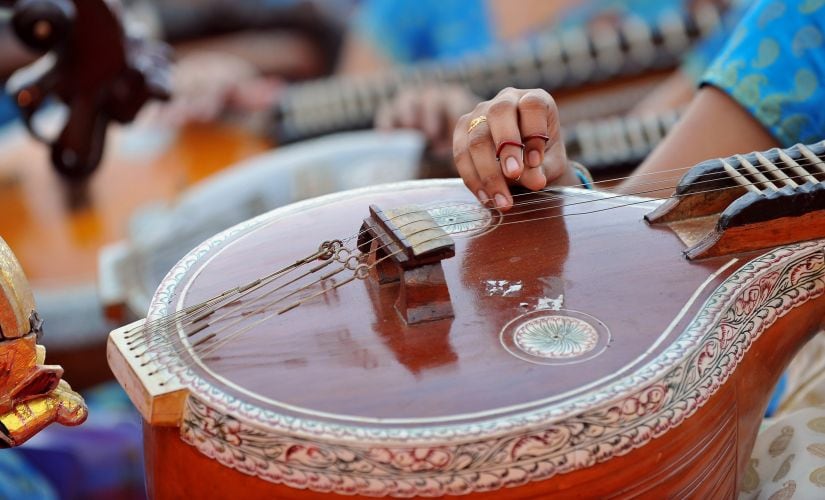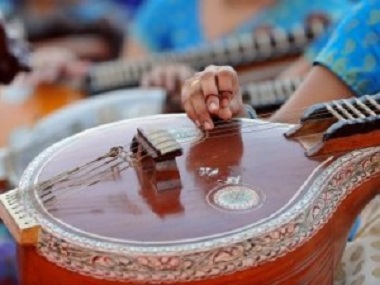Over October 2018, as social media timelines in India were taken over by the second wave of the #MeToo movement, a slew of sexual harassment allegations emerged against several prominent figures in the world of Carnatic music. The Madras Music Academy — which hosts the all-important December music season in Chennai — dropped seven musicians , against whom multiple allegations were raised, from its roster of performers from that year’s programme. The Federation of City Sabhas in Chennai set up an Internal Committee (IC) to look into cases of sexual harassment. A public hearing and consultation that included figures such as Carnatic vocalist TM Krishna, activists Radhika Ganesh and Swetha Sudhakar, and poet-author-politician Salma, among others, invited suggestions on how the classical music space could be made safer for women, releasing a booklet titled, ‘Towards safer, equal spaces: A guide to identifying and dealing with sexual abuse and harassment’. [caption id=“attachment_4964441” align=“alignnone” width=“825”]  More than a year after Carnatic music’s #MeToo reckoning, how much of the promise of a safer space has been achieved isn’t immediately evident. File Photo/AFP[/caption] Looking at the movement’s impact on the cultural sphere, Firstpost’s columnist Lakshmi Sreeram noted at the time that #MeToo would make Carnatic music a safer space — but it would take a while to get there. Sreeram observed , of the informal nature of the Carnatic music domain, and the power structures that permeate it at every level — “Carnatic music operates informally at every level: How a teacher teaches, what she teaches or does not teach, whom she teaches — are entirely up to her discretion. Who an organiser invites to perform, who he ignores, whose opinion he is influenced by, and finally how much he pays the performer are all unregulated, without process. Often, senior gurus exercise significant clout in influencing the choices of the organiser, as do many senior accompanists. Students and young performers need their guru’s support, and that of other senior musicians. When these respected gurus and senior vidwans are accused of preying upon vulnerable students and performers looking to make their way up the field, it is deeply disturbing. The larger cultural situating of the guru-shishya relationship as sacred, one that calls for unwavering faith in the guru and reverence for his every word and whim, makes this even more appalling. That the alleged perpetrators would exploit this lofty ideal, clearly irrelevant in the current times, is tragic.” More than a year after Carnatic music’s #MeToo reckoning, how much of the promise of a safer space has been achieved isn’t immediately evident. On a Saturday afternoon this month, Luz House in Mylapore, Chennai, was the venue for a discussion that might show a way forward. The discussion was part of the three-day CUSP festival, organised by First Edition Arts, and saw panelists and audience engage with the question of “what next”. A general code of ethics, not specific to sexual harassment, should be evolved to make traditional spaces like the Carnatic music sphere legally accountable, said lawyer, activist and one of the afternoon’s panelists Amba Salelkar. (The other panelists included Carnatic singers Vidya Raghavan and Sangeetha Sivakumar, Prajnya Trust founder Swarna Rajagopalan, and Bharatanatyam dancer Varisha Narayanan as the moderator.) Salelkar said that in an ecosystem such as that inhabited by Carnatic music, a single solution that ‘wielded magic’ was not feasible, making a code of conduct vital. She pointed out that sometimes, an individual may be harassed by their own guru, or by someone who wielded enormous power over their career. Where and to whom would the individual turn to for help in this case? Salelkar asked. Further, Salekar remarked how artists enter an intimate workspace, one in which the boundaries between personal and professional are blurred or overlap, and this puts them at a disadvantage. Some artists are especially vulnerable because they have no family backing or are ‘outsiders’, or are queer, or from a different caste. Combined with these factors, those in authority feel they can get away with harassment “because they feel entitled”, Salelkar said at CUSP. Within the Carnatic music space, there is confusion over what behaviour is acceptable, and what isn’t, said Vidya Raghavan, as a consequence of this personal-professional overlap. With this inability to demarcate spaces as personal or professional, the guru-sishya tradition within which most interaction and discourse occurs further complicates issues. The relationship between a young artist and a senior guru, Sangeetha Sivakumar said, “was neither friendship nor plain tutoring”. “It is an unequal relationship in an informal space. To understand its mechanism is very complicated. It largely functions via informal channels like perception, word of mouth, comments etc,” Sivakumar noted. In this scenario, a young artist can lose their career entirely. Harassment is normalised, in that young artists know why these things happen. The fear is instilled in their mind, and handling it becomes a greater challenge than music itself,” said Sivakumar. Sivakumar added that while things were certainly not how they were “four decades ago, when the system was far more conservative than it is now”, change had not come at the pace that it should have. “Young artists should have, over time, naturally enjoyed [greater freedom of] speech and expression. But over the years, the malaise has only increased and they are scared to speak out about their issues.” Swarna Rajagopalan said that in the context of Prajnya’s sensitisation workshops for industries and professionals, she frequently came across these reasons for overlooking or putting up with harassment: He was a father figure, like a brother to me, a gem of a person, a cool guy who behaved in the same way with everyone. “These factors do not matter at all when what you went through was harassment. You need to come out and talk,” Rajagopalan told the audience at CUSP. She further said that harassment wasn’t always limited to being sexual or physical in nature, and it could be verbal or non-verbal, and exploitative. Her suggestion? “All your informal spaces where you train and perform — start treating these spaces as work places; leave none, unless you are singing in your bathroom.” Cibe Chakravarthy Selvaraj is a freelance journalist from Tamil Nadu
More than a year after Carnatic music’s #MeToo reckoning, how much of the promise of a safer space has been achieved isn’t immediately evident.
Advertisement
End of Article


)
)
)
)
)
)
)
)
)



